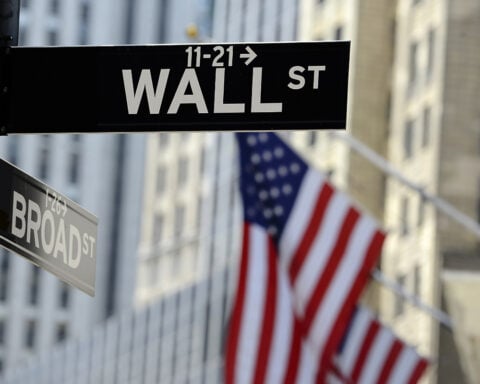Stocks on Wall Street edged lower as Home Depot issued a warning about declining sales, adding to concerns about the overall state of the economy.
The midday trading saw the S&P 500 down by 0.3%. The Dow Jones Industrial Average fell 207 points, or 0.6%, to 33,137 as of 11:15 a.m. Eastern time, while the Nasdaq composite managed a slight 0.1% increase.
Energy companies faced significant downward pressure, with Exxon Mobil dropping 2.6% and Chevron falling 2.2%.
Home Depot also experienced a decline of 1.3% after reporting lower-than-expected revenue for the latest quarter. The company cited broad-based challenges across its business following a period of substantial growth, and it adjusted its sales forecast for the fiscal year due to ongoing uncertainties.
The negative report from Home Depot triggered a decline in other retail stocks, including a 1.4% drop for Lowe’s. Other major retailers, such as Target and Walmart, are scheduled to release their earnings later in the week.
The performance of retailers is being closely watched as consumer spending has been a crucial factor preventing the economy from entering a recession. If consumer spending weakens significantly, a recession could become more likely, wildly, since consumer confidence measures have been trending downward.
Other sectors of the economy have already shown signs of strain under the weight of higher interest rates intended to curb inflation, such as the manufacturing industry.
A report revealed that retail spending across the United States increased but fell short of economists’ expectations.
“While there is often a gap between people’s sentiments and their actual spending, the retail sales report indicates that individuals are starting to cut back on big-ticket items and discretionary categories like sporting goods,” said Brian Jacobsen, chief economist at Annex Wealth Management.
Economists did find some positive aspects within the retail sales report, particularly stronger-than-expected gains when excluding automobile fuel costs. Another report released in the morning also provided encouraging data, showing unexpected growth in the nation’s industrial production for April.
Following the release of these reports, Treasury yields in the bond market rose. The yield on the 10-year Treasury increased to 3.56% from 3.51%. This rise influences mortgage rates and other significant loans.
The two-year Treasury yield, which responds more to expectations of action by the Federal Reserve, climbed to 4.07% from 4.01%.
The general expectation on Wall Street is that the Federal Reserve will maintain interest rates in June. If this occurs, it would be the first time in over a year that the Fed has not raised rates during a meeting, as it works to reduce inflation. A pause by the Fed could provide some breathing room for the economy and financial markets.
Despite most stocks declining, Big Tech and other high-growth stocks benefit from lower interest rates and helped limit losses on Wall Street. Microsoft rose by 1% and Amazon gained 2.2%, exerting significant upward pressure.
Another looming concern for Wall Street is the potential for the U.S. government to default on its debt for the first time. This could happen as early as June 1 if Congress does not agree to raise the nation’s credit limit.
Discussions on the debt limit are scheduled for the afternoon, with high stakes. Economists warn that failure to raise the credit limit could have severe consequences for both the economy and financial markets.
Most of Wall Street expects a resolution to be reached in Washington, as the ramifications of failure would be substantial. However, history has shown that Congress often waits until the last minute to address such matters, which can raise concerns.
In global markets, stocks in Shanghai fell by 0.6%, reflecting concerns about China’s economic recovery. A government official stated that consumer demand and export activity in April were weaker than expected, putting pressure on the country’s post-pandemic recovery.
On the other hand, Tokyo’s Nikkei 225 index rose by 0.7%, continuing its climb toward levels not seen since the early 1990s. European stocks, however, showed modest declines.
Overall, Wall Street’s cautious performance, driven by concerns over declining sales at Home Depot and the impact on consumer spending, reflects the delicate state of the economy. The potential consequences of the U.S. government reaching its debt limit and the ongoing uncertainty surrounding interest rates add further uncertainty to the market.
Investors will closely monitor upcoming earnings reports from major retailers like Target and Walmart to gauge the health of consumer spending. Additionally, any developments on the debt limit issue and indications from the Federal Reserve regarding interest rate decisions will significantly influence market sentiment moving forward.







